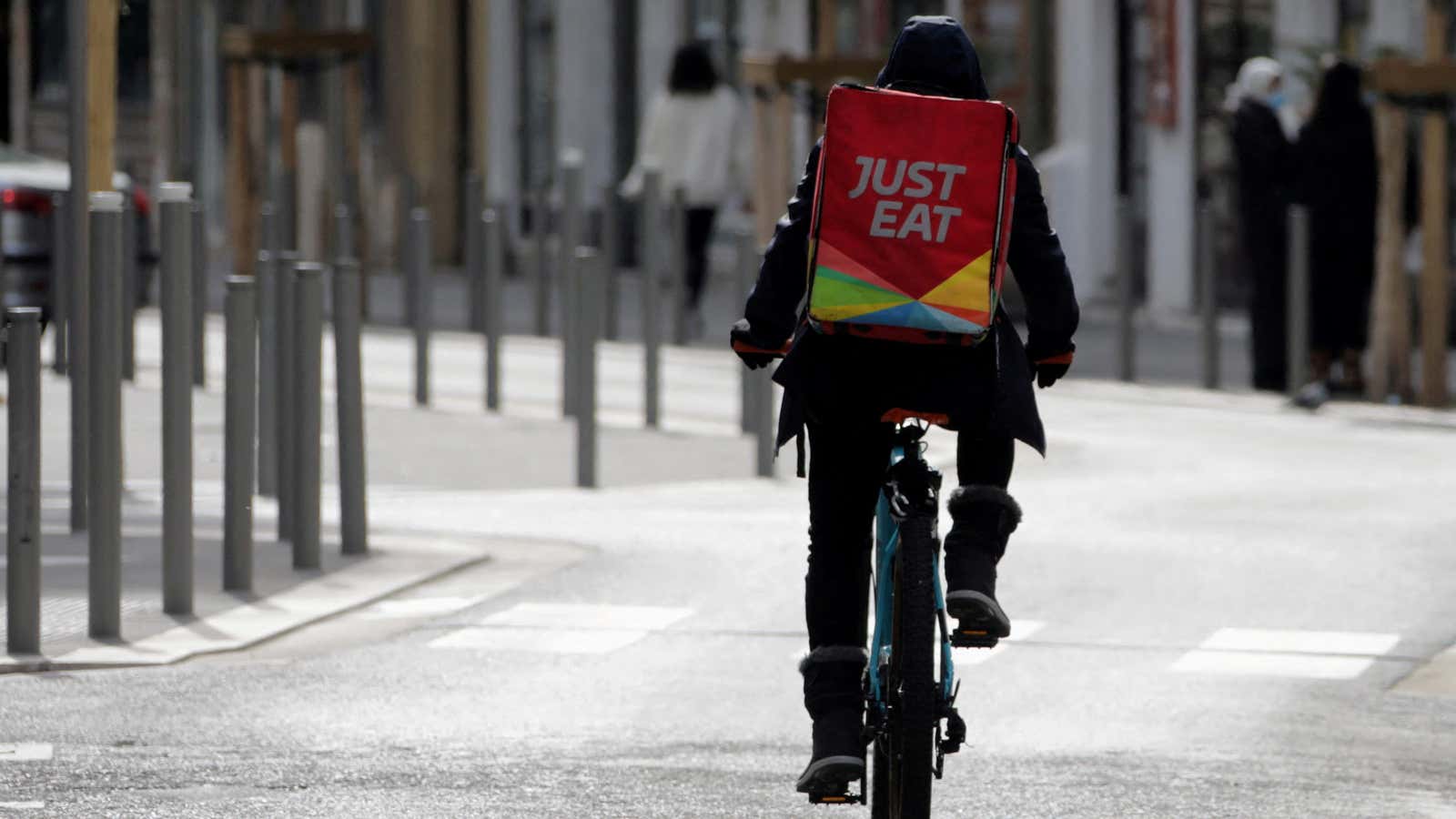Just Eat Takeaway, an Amsterdam-based food delivery company, said today (pdf) it is thinking of selling Grubhub, its US division, after completing a deal to buy it for $7.3 billion last June. The potential sale highlights the challenges of the US food delivery market as the pandemic delivery boom slows.
The company said the number of orders has fallen, with the steepest drop coming from the US (pdf). Just Eat Takeaway CEO Jitse Groen said in March that profitability in the US is restrained by government-imposed fee caps. Grubhub said it lost more than $100 million in the US from fee caps in 2020.
The challenges for delivery
The biggest test for Just Eat Takeaway, which operates largely in Europe, was capturing the US market, but competition has made that tough. Grubhub’s share of the US food delivery market was 23% in April 2020, dropping to 14% in March 2022, according to data from Bloomberg Second Measure, a data analytics company. Meanwhile, DoorDash, which has rapidly expanded into various categories from convenience goods to groceries, continues to gobble up the market from 45% to nearly 60% in that time frame.
Margins are thin in the food delivery market; revenue is typically split between the restaurant and delivery worker, and companies will often dole out discounts to make the service appear more affordable than it actually is.
Just Eat Takeaway said it is focused on increasing revenue per order and reducing overhead costs; it said it expects to reach EBITDA—or earnings before interest, taxes, depreciation, and amortization—positive for 2023.
The state of the US food delivery market
While Just Eat Takeaway and Grubhub’s deal may fall through, food delivery consolidation in the US has become common, as scale is crucial to reaching profitability. DoorDash bought Wolt, a Helsinki-based food delivery startup, for $8 million last year, to expand its international presence. Uber also played a role in consolidation, purchasing Postmates, a US food delivery company, and Cornershop, a Chile-based grocery delivery startup. But even as companies consolidate, grocery delivery companies like Gorillas and JOKR are entering the market.
The big question for delivery companies will be, as quickly as it captured a large audience, how much of it will it keep? Demand will drop but is likely to remain higher than it was pre-pandemic, analysts say—delivery has become a habit. In the meantime, food delivery companies are looking to expand into new categories, largely, into areas with consistent purchases like groceries.
